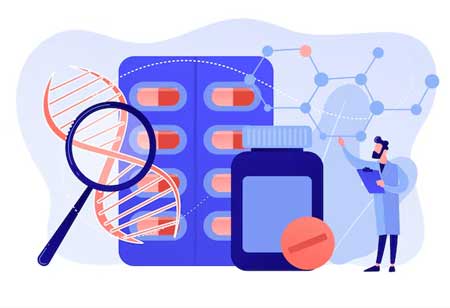Speech Therapy: Enhancing Lives, One Word at a Time
Speech therapy is essential for breaking down communication obstacles and reaching individual objectives.

By
Medical Care Review | Friday, March 14, 2025
Stay on top of your health and well-being with exclusive feature stories on the top medical clinics and treatment centers, expert insights and the latest news delivered straight to your inbox. Subscribe today.
FREMONT, CA: Speech therapy provides numerous advantages for people of all ages dealing with communication and swallowing challenges.Speech therapy significantly improves overall quality of life by enhancing communication skills, helping individuals pronounce words more clearly and boosting speech clarity and understanding. Speech-language pathologists (SLP) utilize specialized methods to treat issues related to speech, language, voice, fluency, and swallowing. They also support individuals in conveying their thoughts, needs, and emotions, through speech or written language.
Therapy helps individuals understand and process the language they hear or read, improving their ability to follow directions and comprehend information. Effective communication is crucial for social interactions, and speech therapy helps individuals develop. Pragmatic skills are the social language skills needed for engaging in conversations, including taking turns, maintaining eye contact, and understanding non-verbal cues. Improved communication skills lead to greater self-confidence, making social interactions more enjoyable and less stressful. Children with developmental delays often benefit significantly from speech therapy. Addressing speech and language issues can prevent more severe problems later on.
Early intervention is particularly effective for children with conditions such as autism, Down syndrome, and hearing impairments. Speech therapy supports the overall development of language skills, helping children catch up to their peers in communication abilities. Fluency disorders, such as stuttering, can be debilitating. SLPs teach strategies to manage and reduce stuttering, such as slow speech, breathing techniques, and smooth speech patterns. Therapy provides a safe space for individuals to discuss their experiences with stuttering, helping to reduce anxiety and build confidence. SLPs teach safe swallowing techniques to prevent choking and aspiration.
SLPs teach exercises to strengthen vocal cords and improve voice quality. Therapy includes education on proper voice care, such as hydration, avoiding strain, and breathing techniques. Cognitive-communication disorders can result from brain injuries, strokes, or neurodegenerative diseases. SLPs work on memory, attention, problem-solving, and organizational skills. Individuals learn strategies to compensate for cognitive deficits, improving their ability to function independently. Speech therapists address swallowing disorders, known as dysphagia, which can result from various medical conditions. Food and liquid consistency recommendations help ensure safe and adequate nutrition.
Therapy supports the development of literacy skills, enhancing reading comprehension and writing abilities. Improved communication skills enable children to participate more actively and confidently in classroom discussions and activities. Speech therapy offers personalized treatment plans tailored to individual needs, ensuring the most effective interventions. This individualized approach means that treatment is adapted to address each person's unique challenges and goals. The benefits of speech therapy are extensive, touching various aspects of an individual's life. It enhances the quality of life, fosters independence, and promotes better social and academic outcomes.







